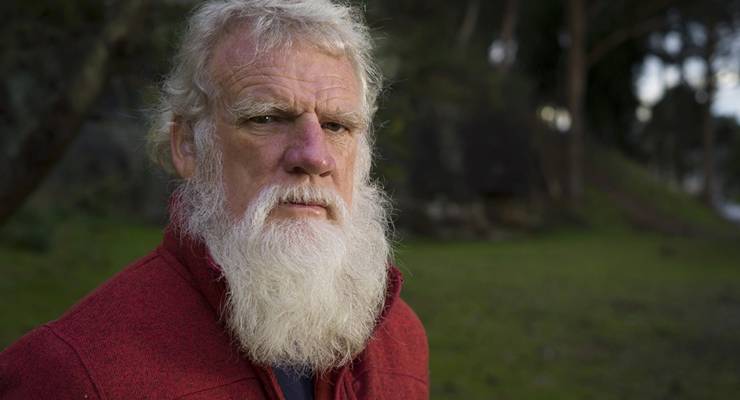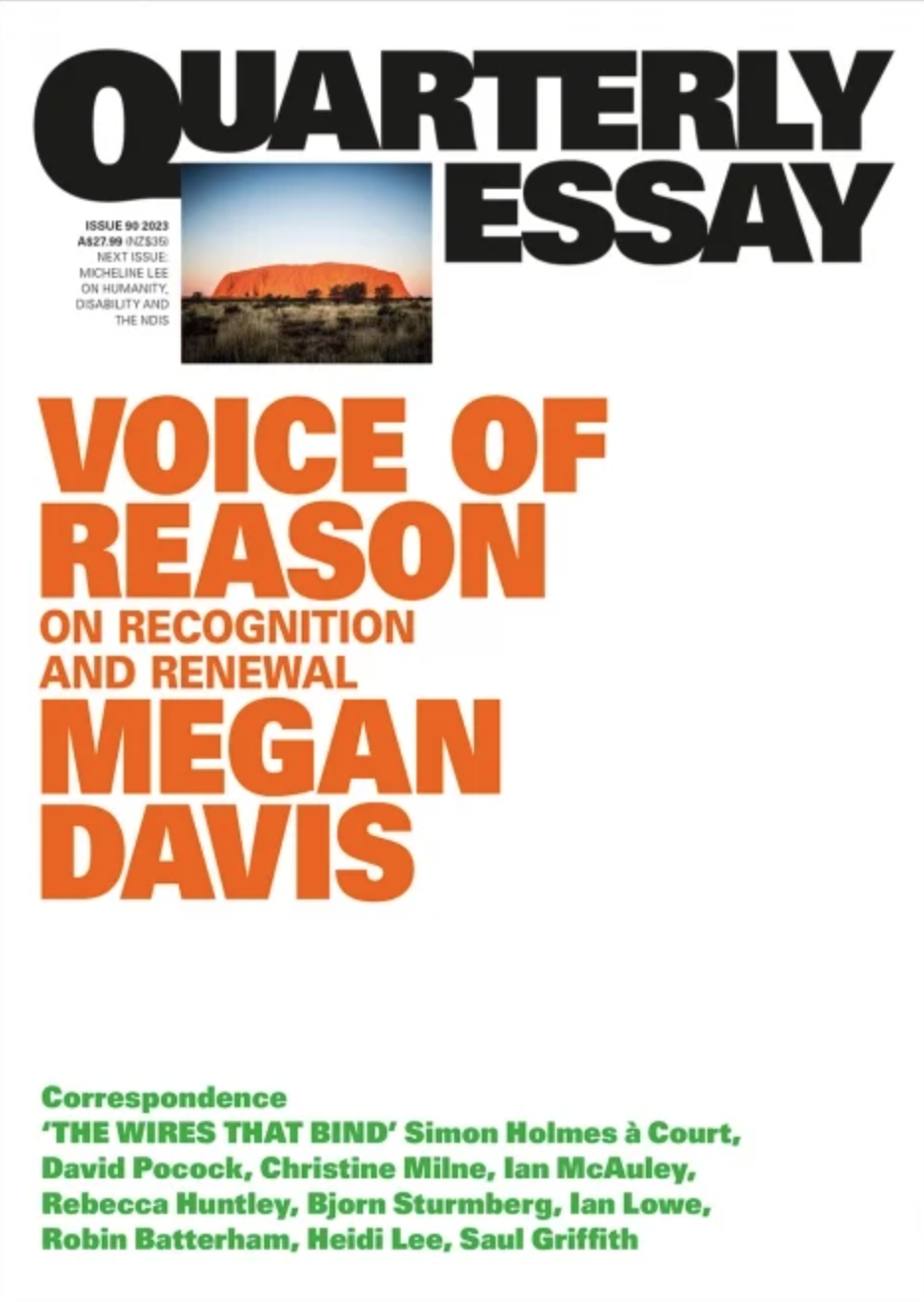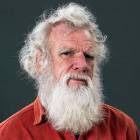
One of the most insidious threats to democracy is the idea that learning and intelligence are enemies of the people. It is fashionable for politicians to accuse experts of trying to hoodwink the public, to tell them that knowledge is a plot of the elites, situating the populist politician as their only true friend.
These are the arguments of the huckster, the carpetbagger, the autocrat and the fascist. Reduce all argument to slogans — and when the promise of making a nation great collapses, it is easy to blame the elites.
Populations have a responsibility to resist this scaremongering.
The debate on the Indigenous Voice to Parliament is no different. The populists claim there is no information, that the debate is being run by uncaring elites and will racialise society.
Society used to respect experts, and in some cases we still do. Most of us prefer an electrician to Uncle Fred when we need to fix a shorting light switch in the bathroom. It is safer, and the expert comes with assurance and insurance.
Knowledge used to be like that. If we wanted to know about an illness, we went to a doctor; now too many assume the doctor wants to kill us and so we go and buy a crystal and hum in a tent.
The Aboriginal and Torres Strait Islander people who met to forge the Uluru Statement from the Heart were cultural experts. They didn’t always agree but they produced the most beautifully written peace document I have ever read, a piece of art as well as a robust statement of the national situation. And it was full of love.
Former prime minister Malcolm Turnbull rejected it before that day’s lunch sandwiches were cut. Who needs an expert?!
I can understand those who say we need treaty before constitutional recognition. Their argument has merit, but I can’t see that it is in Black interests to knock back the first offer to be included in the foundation statement simply because you object to the position of agenda items. And if being part of the colonial constitution is offensive, then there’s always the opportunity to go back to being fauna and flora.

Megan Davis — a Cobble Cobble woman of the Barunggam Nation and a renowned constitutional lawyer and public law expert — has written a document for Quarterly Essay that covers the whole ground of colonial assumptions and Indigenous dispossession. She is an expert — not the expert, but an authoritative voice. If you don’t want to listen to people who have devoted their lives to social justice for their people, then I think you should buy a crystal and get Uncle Fred to fix your electrical problems with fencing wire and gaffer tape.
The issues are complicated. Too complicated to leave to politicians who can’t, or won’t, read.
Davis very calmly paints the picture of Aboriginal disadvantage and the origins of that disadvantage. Importantly, however, she emphasises that Aboriginal and Torres Strait Islander people never ceded the land and the British never followed the terms of occupation as outlined by their sovereign.
Aboriginal people believed in realpolitik and continued to interact with the invader in order to set out their own sovereignty and claims of attachment to the land. She quotes Fred Maynard and William Cooper, both underrated Aboriginal advocates.
Bret Walker SC has said of this situation: “The basis of settlement of Australia is and always has been, ultimately, the exertion of force by and on behalf of the British arrivals. They did not ask permission to settle. No one consented, no one ceded.”
The legal authority is completely absent. And in its absence, Australia was able to build, fig leaf by fig leaf, a myth of legitimacy. In this embarrassing nakedness, the few Australian attempts at some adjustment of this situation asked everything of the people and nothing of the state.
Davis discusses Welcomes to Country and reconciliation action plans in this same light: they limit themselves to words without a requirement for action, ideal in a country where the colony has no valid authority over the land. She points out the desperation of previous governments to settle for an acknowledgment without any obligation to change the constitution of institutionalised racism that rises out of precisely this legal vacuum.
The role of adversarial politics is also discussed and its opposite, reasoned dialogue, is advocated.
Reason is exactly what the Uluru Statement suggests. It is the most gracious and modest statement. It opens the way for a relationship that white and Black have never had in this country, suggesting a way of us living together in some kind of justice and harmony. The avoidance of this opportunity reveals a cynical view of humanity and the role of justice.
There are any number of books providing a welter of information on constitutional recognition, but Davis’ essay is a generous, coherent and thorough summary. Available to anyone who honestly wants the information.








Spot on Bruce Pascoe. I will be voting Yes because it is the right thing to do. There should be nothing more to it. Why do naysayers find doing what it right so utterly repugnant?
Such certainty “…it is the right thing to do.” should be “..utterly repugnant” to any sensible person – or is that just the frighteningly prevalent post Enlightenment feelzgood sanctimony?
“The ceremony of Innocence is drowned…the worst are full of passionate intensity” – send not to ask for whom the knell is heard, it is for all who surrender judgement for vacuity.
Why should ethical certainty be repugnant???
There is nothing ethical about immutable certainty – in fact it is a solid contraindication.
You’ve just repeated your mantra without addressing the question of why.
My initial reaction is that in certain circumstances, ethical certainty is fine. But I’d like to hear why you think this isn’t so, before I make any conclusions.
Why is ethical certainty repugnant?
Because, as you demonstrate, it does not allow for thinking.
This is the Truth because I am Ethically Certain.
Have you heard of the Worm Ouroboros?
I have demonstrated no allowance for thinking?? You’re jumping at shadows.
You should try answering questions clearly, instead of denigrating people who are genuinely wanting to understand your perspective.
Thinking is always required. After careful consideration of all the facts, why can one not reach certainty about the ethical dimensions of an action?
See my earlier quote of the closing lines from Yeat’s “Second Coming“.
I concur in everything Bruce has written here. However it does not address why the No vote is now leading in the polls and what needs to be done to counteract it. The underlying problem is that opponents of the Yes vote have got away with telling the people the proposal is complicated with a raft of hidden meanings and dreadful outcomes for future governing of the country.
They are all lies. Advocates need to say so and keep on saying it or the No voters will win. Just pointing out the desirability of passing the Voice will not cut it in this environment.
Nailed it. Someone we know made a post on Facebook babbling tht he has worked hard all his life and bought a house only to have it taken away from him if the Yes vote wins.
I think the government needs to make more effort explaining that voting Yes will not create a land grab, because only white people are allowed to do that.
We still ignore the knowledge that 70 thousand years of human occupation of this country has amassed.
Wouldn’t you question the gullibility of somebody who believes that crap about losing his house if the Voice referendum is won? Are we really that stupid?
In my experience, that sort of complaint is usually cover for a darker world view.
Absolutely. How is it that just racists will lose their houses, while the rest of us don’t?
It’s easy to imagine someone who doesn’t share your views is either gullible or stupid, but rarely accurate.
People hold different political views, not because some are smarter than others, but because they have different histories, experience, and interests.
You, Mercurial, and other people who comment on this article, have a well developed understanding of the injustices of colonial history on this continent, and you feel that social justice demands some kind of rebalancing. You might argue with your peers about the form of rebalancing that would be most effective, but at least you’d agree that some positive action is warranted.
Not everybody has the same understanding of fundamentals to begin with.
If a person who has no indigenous relatives or connections is brought up in a community where no indigenous people have a prominent voice or presence as community leaders, professionals, property owners, entrepreneurs, entertainers or magistrates, they might not ever have learned about the injustices that happened 200 years ago, and might be incredulous at the concept that such injustices affect other people’s lives today. If that’s the case, they might not be able, intellectually, to entertain the thought that indigenous people need something just to lift them up to the level where they have an equal chance to participate in society to the same extent that non-indigenous people do.
Who are these ignorant (or uneducated, or innocent if you want to try less emotionally negative descriptions) people?
Millions of Australians! That’s how many people live in the types of communities I described above, where no indigenous people are prominent. That’s how many Australians attended 13 years of schooling without reading any form of history that comes close to explaining what Dark Emu explains. That’s how many Australians turn on their TV every day and watch their favorite shows about ordinary and extraordinary lives, without ever seeing a single indigenous personality having any kind of life.
Literally millions of Australians don’t know what you know to begin with, Mercurial, that there is a problem.
But if they did know, at least half of them would think more like you, because they are all human beings who have compassion and rational minds that understand society not just in selfish terms, but as a set of communal relationships.
This is an another important subject that requires a citizen to have at the very least a basic moral platform. We are all taught what is right and wrong from a very early age. Of course, there are those who will never have the capacity to understand or accept societal guidelines but this number is certainly not millions of Australians. Those that vote against an obvious wrong generally do so because of their vested interest/s in doing so, not because they are ignorant/deficient due to their individual life experiences. It’s about right and wrong, the grey area of why an ADULT person behaves the way they do at the end of the day is often a distraction used to avoid truth.
Sounds like the worn, tattered carbon paper used for Mabo.
For which “good old” DPM Tim Fischer promised “BUCKETLOADS OF EXTINGUISHMENT” to enable the Rodent to win and win and win for decade of yet more misrule, malignant policy and set ticking numerous fiscal time bombs still wrecking this country’s governance through endless entitlements to middle class welfare.
I should have replied here. “They are all lies” – our Nation is built on lies!
I hope that this cognisant information finds its way into the mainstream media so that they can impartially inform their viewers and listeners, I won’t hold my breath. Why is it so difficult that so many of my fellow Australians can’t take the time to learn and engage about such an important issue, a seed must first be available for knowledge to grow – keep on clucking Australia. Love your work Bruce Pascoe, anyone who can rattle the malodorous elite deserves a good listening.
I absolutely agree with you, Tony. …and with Bruce, that we all should listen to experts (not crystals and humming). Unfortunately, we are a culture based around “having things”, rather than “knowledge” – the latter requires mental effort.
Sadly it is a statistical fact that just below 50% of the population has below average intelligence.
It will most likely get a (negative) run on Sky, and in the Oz, by Andrew Bolt. Pascoe is one of Bolt’s favorite whipping boys
One of the reasons for the intense hostility to the voice proposition is that it will be followed by the treaty. This has the potential to radically rewrite our conception of land ownership. Certain interests, which have historically accumulated, and continue to accumulate, great wealth from the current arrangements quite rightly see this posing a risk to their inordinate colonial privilege. Killing off the voice will kill off the treaty for at least another generation. Follow the money.
Isn’t there a saying that those who are guilty of something are the first to suspect someone else? Many of us cannot trust “The Voice” because we cannot trust the First Nations Peoples. We, including our various governments are cheats – we cannot be trusted and therefore do not trust others.
Exactly!
We can’t retreat into eco-mysticism. We are only here, commenting on this article because 200 years of innovation and economic growth have lifted our living standards into the stratosphere, and we’re mainly happier as a result.
Australia (and the US) lost the plot some time between the sane economically-oriented and socially-caring Hawke-Keating era and the identity-based special pleading and general nuttiness we have now. We need a bit more rationality. Seriously, has a reverse Flynn effect kicked in? Is it something everyone ate?
Wouldn’t disagree with anything in here broadly. But sadly ‘trust the experts’ has never won a campaign…I think the yes side have to build something more campaign sophisticated than that…not doubting that there are many erudite and informed people there. They need to be clinical about a pathway to win, who they need to persuade, with which arguments and messengers. A Voice can lead to a better quality of consideration of policy, legislation and program implementation, by articulating for and against arguments with more clarity. It shouldnt be expected to solve every problem, it won’t, but it can improve our pathway to solving these issues. The key is we have to find that 5-10% of persuadable people and talk to them consistently around their questions with clear responses. Not waste time running events for the already converted, or talking to the unpersuadable.